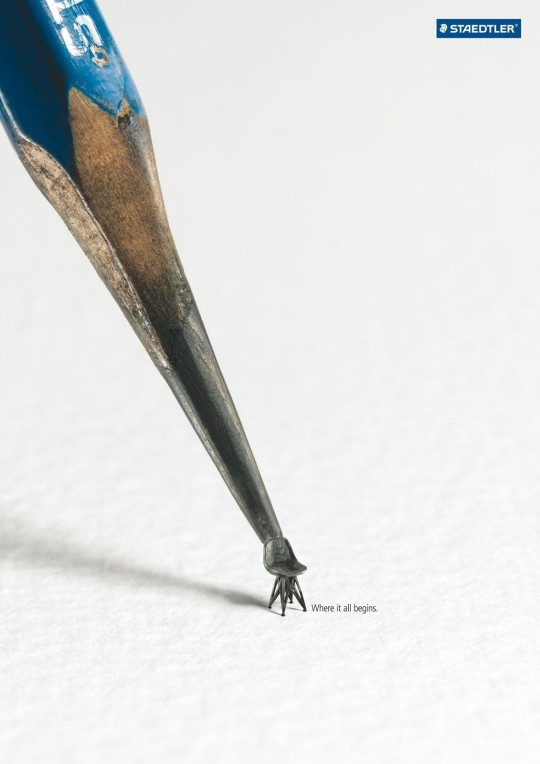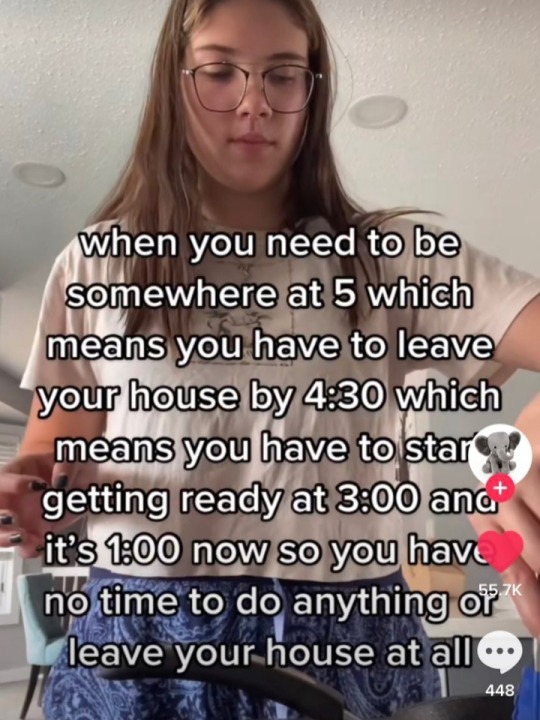Don't wanna be here? Send us removal request.
Text

To Leeza I would take out pieces of my soul to fill yours !
4K notes
·
View notes
Text
Depression in summer is weird. It’s not dark and brooding, for me - it’s white and hazy and confusing. You feel very absent from everyone and everything and all the light seems a little too bright for your tired eyes.
225K notes
·
View notes
Text
November is:
studying, learning new things, passing all exams, skin-care, self-care, drinking lots of water, vitamins, workouts, pilates, and watching gossip girl.
3K notes
·
View notes
Text
Narrated `Abdullah bin `Umar:
Allah's Messenger (ﷺ) said, "When the Jews greet you, they usually say, 'As-Samu 'alaikum (Death be on you),' so you should say (in reply to them), 'Wa'alaikum (And on you).
Sahih Al Bukhari 6257
15 notes
·
View notes
Text
Ya Allah, grant me all the good things,ease my pain, heal my body, grant me peace , love and happiness. Grant me love of those you love.
1 note
·
View note
Text
Ibn Al-Qayyim, رحمه الله said:
"Whoever increases in worry and sadness, he should abundantly recite: Laa hawla wa laa quwwata illaa billāh."
[زاد المعاد ٤/١٨٣]
62 notes
·
View notes
Text
Huḍayfah said: "There will come a time where none of you will be safe, except he who makes Du'ā as if he was drowning."
[المسترك على الصحيحين]
82 notes
·
View notes
Text
Aishah (May Allah be pleased with her) reported: When the Prophet (ﷺ) visited any ailing member of his family, he would touch the sick person with his right hand and would supplicate:
اللَّهُمَّ ربَّ النَّاسِ ، أَذْهِب الْبَأسَ ، ��اشْفِ ، أَنْتَ الشَّافي لا شِفَاءَ إِلاَّ شِفَاؤُكَ ، شِفاءً لا يُغَادِرُ سقَماً
Allaahumma Rabban-naas, adhhibil-ba’s, washfi antash-Shaafi laa shifaa’a illaa shifaa’uka shifaa’an laa yughaadiru saqaman
(O Allaah, Lord of mankind, do away with my suffering. Heal (me) as You are the only Healer and there is no cure except that of Yours, it is that which leaves no ailment behind)
[Al Bukhari (with Al-Fath 10/206) and Muslim 4/1721]
9 notes
·
View notes
Text
Imam Al-Awza’i رحمہ اللّٰہ said:
At the time of Fajr, or a while before it, the pious predecessors would be as if birds were sitting on their heads(still ) concentrating on themselves [and their worship], so much so that even if one of their closest friends came to them after having been parted from them, they would not notice him. They would remain in this state until just before sunrise. Then, they would meet each other and sit in the circles. The first thing they would discuss is the matter of their afterlife and what would become of them in the hereafter. Then they would begin the circles of Qur’an and Fiqh study.
-Tarikh Dimishq, Ibn Asakir

1 note
·
View note
Text
DAILY DUA
Dua and remembrance to be said at any time #8
اللَّهُمَّ مَتِّعْنِي بِسَمْعِي وَبَصَرِي وَاجْعَلْهُمَا الوَارِثَ مِنِّي، وَانْصُرْنِي عَلَى مَنْ ظَلَمَنِي، وَخُذْ مِنْهُ بِثَأْرِي
Translation
O Allah, grant me enjoyment of my hearing and sight, and keep them healthy and sound until the day I die, and aid me against those who oppress me, and avenge me from them.
Transliteration
Allaahumm-a mati‛ni bi sam‛i wa baṣari waj-‛alhumul-waaritha minni, wan-ṣurni ‛la man yaẓ-limuni, wa khudh minhu bi tha’ri
Sources: At-Tirmidhi No# 3604
11 notes
·
View notes
Text

Abu Huraira reported: The Messenger of Allah, peace and blessings be upon him, said, “Every matter of importance that is not begun with the praise of Allah will be left deficient.”
Source: Sunan Ibn Majah 1894
Grade: Hasan (fair) according to Ibn Hajar
عَنْ أَبِي هُرَيْرَةَ قَالَ قَالَ رَسُولُ اللَّهِ صَلَّى اللَّهُ عَلَيْهِ وَسَلَّمَ كُلُّ أَمْرٍ ذِي بَالٍ لَا يُبْدَأُ فِيهِ بِالْحَمْدِ أَقْطَعُ
1894 سنن ابن ماجه كِتَاب النِّكَاحِ كل أمر ذي بال لا يبدأ فيه بالحمد أقطع
المحدث ابن حجر العسقلاني خلاصة حكم المحدث حسن
5 notes
·
View notes
Text
Hadith on Dua: Allah shy to turn away a sincere prayer
Salman al-Farsi reported: The Prophet, peace and blessings be upon him, said, “Verily, Allah is conscientious and generous. He would be shy, when a man raises his hands to Him, to turn them away empty and disappointed.”
Source: Sunan al-Tirmidhī 3556
Grade: Sahih (authentic) according to Al-Albani
10 notes
·
View notes
Text
When Israr Ahmed said "raasta nazar naa aye tab Allah pr yakeen imaan hai. Wo asbaab ka mohtaj nahi, asbaab Us kay mohtaj hain"
1 note
·
View note
Text
Narrated Abu Huraira:
Some poor people came to the Prophet (ﷺ) and said, "The wealthy people will get higher grades and will have permanent enjoyment and they pray like us and fast as we do. They have more money by which they perform the Hajj, and `Umra; fight and struggle in Allah's Cause and give in charity." The Prophet said, "Shall I not tell you a thing upon which if you acted you would catch up with those who have surpassed you? Nobody would overtake you and you would be better than the people amongst whom you live except those who would do the same. Say "Subhana l-lah", "Al hamdu li l-lah" and "Allahu Akbar" thirty three times each after every (compulsory) prayer." We differed and some of us said that we should say, "Subhan-al-lah" thirty three times and "Al hamdu li l-lah" thirty three times and "Allahu Akbar" thirty four times. I went to the Prophet (ﷺ) who said, "Say, "Subhan-al-lah" and "Al hamdu li l-lah" and "Allahu Akbar" all together [??], thirty three times."
حَدَّثَنَا مُحَمَّدُ بْنُ أَبِي بَكْرٍ، قَالَ حَدَّثَنَا مُعْتَمِرٌ، عَنْ عُبَيْدِ اللَّهِ، عَنْ سُمَىٍّ، عَنْ أَبِي صَالِحٍ، عَنْ أَبِي هُرَيْرَةَ ـ رضى الله عنه ـ قَالَ جَاءَ الْفُقَرَاءُ إِلَى النَّبِيِّ صلى الله عليه وسلم فَقَالُوا ذَهَبَ أَهْلُ الدُّثُورِ مِنَ الأَمْوَالِ بِالدَّرَجَاتِ الْعُلاَ وَالنَّعِيمِ الْمُقِيمِ، يُصَلُّونَ كَمَا نُصَلِّي، وَيَصُومُونَ كَمَا نَصُومُ، وَلَهُمْ فَضْلٌ مِنْ أَمْوَالٍ يَحُجُّونَ بِهَا، وَيَعْتَمِرُونَ، وَيُجَاهِدُونَ، وَيَتَصَدَّقُونَ قَالَ " أَلاَ أُحَدِّثُكُمْ بِأَمْرٍ إِنْ أَخَذْتُمْ بِهِ أَدْرَكْتُمْ مَنْ سَبَقَكُمْ وَلَمْ يُدْرِكْكُمْ أَحَدٌ بَعْدَكُمْ، وَكُنْتُمْ خَيْرَ مَنْ أَنْتُمْ بَيْنَ ظَهْرَانَيْهِ، إِلاَّ مَنْ عَمِلَ مِثْلَهُ تُسَبِّحُونَ وَتَحْمَدُونَ، وَتُكَبِّرُونَ خَلْفَ كُلِّ صَلاَةٍ ثَلاَثًا وَثَلاَثِينَ ". فَاخْتَلَفْنَا بَيْنَنَا فَقَالَ بَعْضُنَا نُسَبِّحُ ثَلاَثًا وَثَلاَثِينَ، وَنَحْمَدُ ثَلاَثًا وَثَلاَثِينَ، وَنُكَبِّرُ أَرْبَعًا وَثَلاَثِينَ. فَرَجَعْتُ إِلَيْهِ فَقَالَ " تَقُولُ سُبْحَانَ اللَّهِ، وَالْحَمْدُ لِلَّهِ، وَاللَّهُ أَكْبَرُ، حَتَّى يَكُونَ مِنْهُنَّ كُلِّهِنَّ ثَلاَثًا وَثَلاَثِينَ ".
Reference : Sahih al-Bukhari 843
In-book reference : Book 10, Hadith 235
Vol. 1, Book 12, Hadith 804
1 note
·
View note
Text
Sahih al-Bukhari 794
Narrated `Aisha:
The Prophet (ﷺ) used to say in his bowing and prostrations, "Subhanaka l-lahumma Rabbana wa bihamdika; Allahumma ghfir li.' (Exalted [from unbecoming attributes] Are you O Allah our Lord, and by Your praise [do I exalt you]. O Allah! Forgive me).
حَدَّثَنَا حَفْصُ بْنُ عُمَرَ، قَالَ حَدَّثَنَا شُعْبَةُ، عَنْ مَنْصُورٍ، عَنْ أَبِي الضُّحَى، عَنْ مَسْرُوقٍ، عَنْ عَائِشَةَ ـ رضى الله عنها ـ قَالَتْ كَانَ النَّبِيُّ صلى الله عليه وسلم يَقُولُ فِي رُكُوعِهِ وَسُجُودِهِ " سُبْحَانَكَ اللَّهُمَّ رَبَّنَا وَبِحَمْدِكَ، اللَّهُمَّ اغْفِرْ لِي ".
Reference : Sahih al-Bukhari 794In-book reference : Book 10, Hadith 189 reference : Vol. 1, Book 12, Hadith 760
1 note
·
View note

